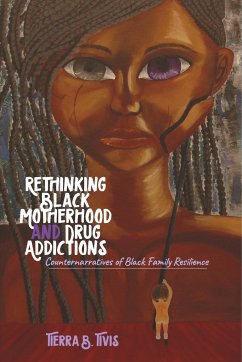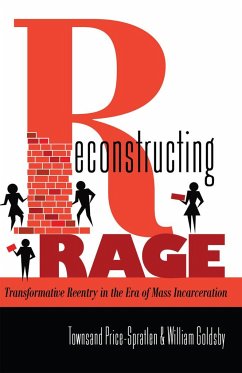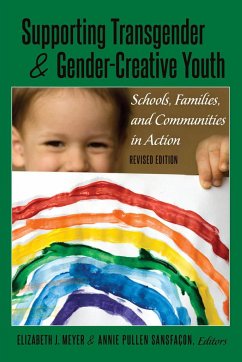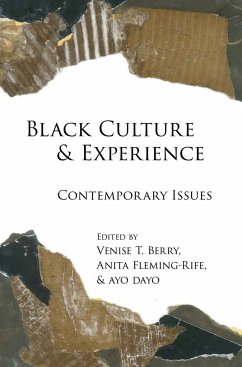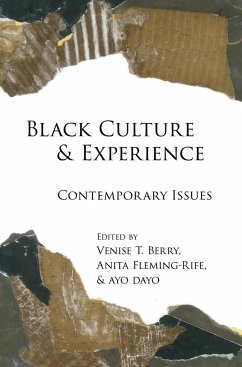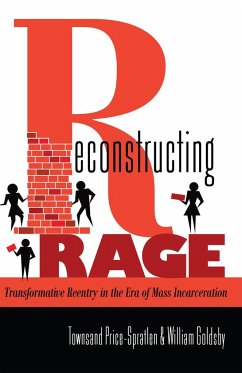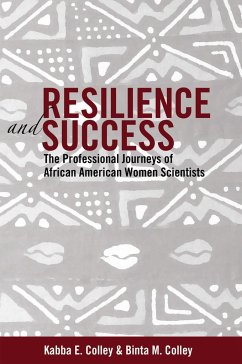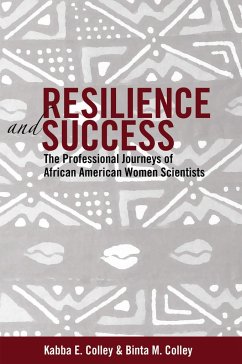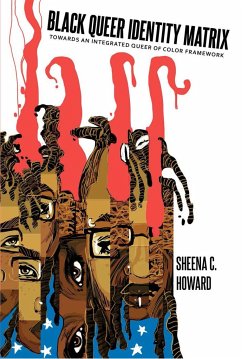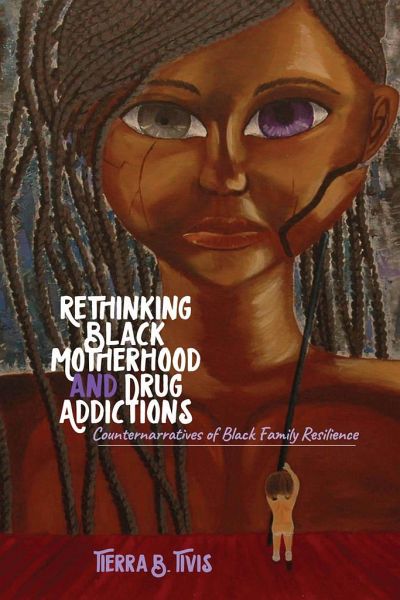
Rethinking Black Motherhood and Drug Addictions
Counternarratives of Black Family Resilience
Versandkostenfrei!
Versandfertig in 6-10 Tagen
103,70 €
inkl. MwSt.
Weitere Ausgaben:

PAYBACK Punkte
0 °P sammeln!
Rethinking Black Motherhood and Drug Addictions: Counternarratives of Black Family Resilience offers a unique perspective on the complexities of being a Black mother addicted to crack, powder cocaine, heroin, and crank. Qualitative interviews provide rich narratives from five Black mothers challenging negative controlled images and stereotypes of Black motherhood and drug addiction. Using Black Feminist Thought, Critical Race Feminism, and Resilience as conceptual frameworks, this book confronts hegemonic constructions of Black mothers and their children within the context of drug addictions. ...
Rethinking Black Motherhood and Drug Addictions: Counternarratives of Black Family Resilience offers a unique perspective on the complexities of being a Black mother addicted to crack, powder cocaine, heroin, and crank. Qualitative interviews provide rich narratives from five Black mothers challenging negative controlled images and stereotypes of Black motherhood and drug addiction. Using Black Feminist Thought, Critical Race Feminism, and Resilience as conceptual frameworks, this book confronts hegemonic constructions of Black mothers and their children within the context of drug addictions. Particular attention is focused on using the mothers' self-definitions of struggles and family resilience to dismantle the negative controlled images of the junkie and the crack ho' and her crack baby.
The mothers in this book speak truth to their experiences with motherhood and addictions to some of the most powerful street drugs that explicitly defy the junkie, crack ho', and crack baby images. The book also addresses tensions existing within researcher-participant relationships and nuances unique to research with Black mothers in recovery. Personal lessons learned and challenges experienced during the research process are highlighted as Tivis shares dilemmas of self-reflections of positionality, accountability and use of language.
Rethinking Black Motherhood and Drug Addictions contains important implications for research and practice in education and across other disciplines concentrating on mothers and children from racially diverse backgrounds. This book will be relevant for both undergraduate and graduate students and academics within these disciplines. Rethinking Black Motherhood and Drug Addictions will be of interest to advanced pre-service teachers and other disciplines engaging in clinical and professional practice with addiction and with families.
The mothers in this book speak truth to their experiences with motherhood and addictions to some of the most powerful street drugs that explicitly defy the junkie, crack ho', and crack baby images. The book also addresses tensions existing within researcher-participant relationships and nuances unique to research with Black mothers in recovery. Personal lessons learned and challenges experienced during the research process are highlighted as Tivis shares dilemmas of self-reflections of positionality, accountability and use of language.
Rethinking Black Motherhood and Drug Addictions contains important implications for research and practice in education and across other disciplines concentrating on mothers and children from racially diverse backgrounds. This book will be relevant for both undergraduate and graduate students and academics within these disciplines. Rethinking Black Motherhood and Drug Addictions will be of interest to advanced pre-service teachers and other disciplines engaging in clinical and professional practice with addiction and with families.





